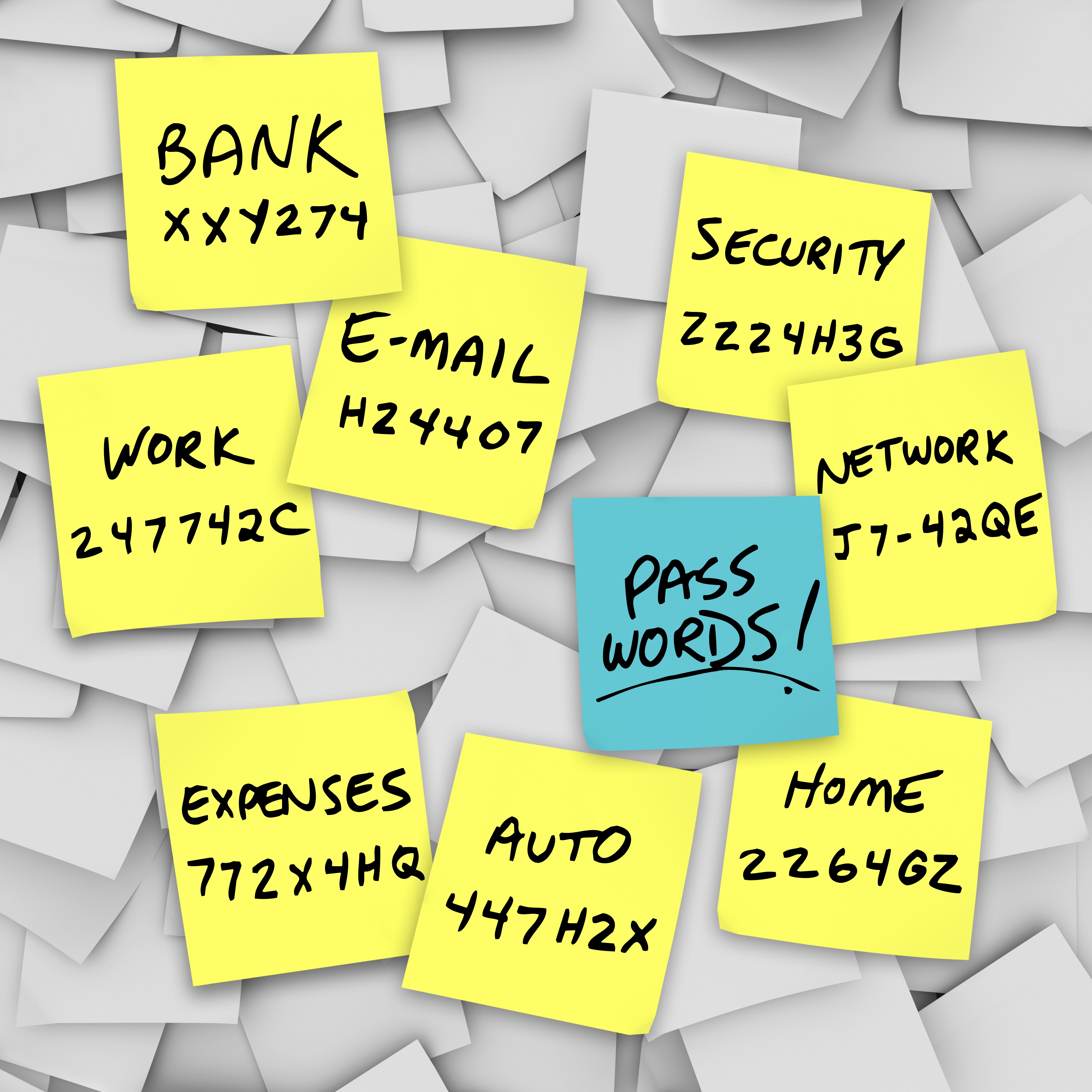How Often Do You Forget a Password?
We all do it sometimes. We mean to jot down a password for a new site, but the phone rings or we can’t find a pencil—or we write it on a sticky note and forget where we put it. And—the number of passwords we need seems to be growing and include email, banking, shopping, news, and social media accounts. According to one online survey, the average person has 27 discrete online logins and over 35% of those surveyed forget a password at least once a week.
Sometimes the consequences for forgetting a password are minimal, but at other times it is costly. For example, in 2013, one investor bought 15 Bitcoins for about $260. Now they are worth almost $300,000. However, he can’t remember his password. To crack his password code, he considered using a hypnotist, but decided to try building a supercomputer.
But other uncharted consequences you are “paying” include the horrible waste of time it takes to reset your password or search for a lost password, and don’t forget how that impacts your productivity!
What Not to Do
What is a hacker’s dream? It’s the person or company with “awful passwords.” Some of the most common easy or hack able passwords include names of movies (e.g., “Starwars”), common names (e.g., John), the word password, years, and sports references.
It’s easy to have a false sense of security, but it is necessary to be thoughtful and organized when it comes to creating and storing passwords. In the future, more and more of our information and daily activities will be completed online including ordering groceries, accessing medical records, and paying taxes. It is bad enough when hackers steal our information from a store or institution. We don’t need to help them. Protect yourself online.
How are you avoiding costly consequences related to poor password saving habits?
With the fear of hacking and identity theft, we’re encouraged to:
- Use different passwords for each account. No longer can we take the easy way out thinking “one password fits all.”
- Use strong passwords including numbers, punctuation, and symbols.
- Reflect and gain advice about where to securely store the passwords.
The 10 Tips
While it may seem like a hassle to implement password security, once you develop the habit it should become relatively routine. Here are 10 Vital Tips to Get Started Protecting Yourself:
- For each site, include the URL, the password, the email address you used for that site, and answers to security questions. Try to use similar answers. For example, a common security question is “Where were you born?” Sounds simple, but for one site, I wrote, Brooklyn, New York, for another site, I wrote Brooklyn, NY, and for still another site, I wrote New York, New York. Now my rule is to write, Brooklyn, NY. It is difficult and time-consuming to change a password without an accurate answer to the security question.
- Keep a hard copy of the list.
- Store the list in a secure location such as a locked cabinet. Do not tape lists on your computer or leave a notebook by your desk.
- Hope for the best but plan for the worst. In case of an emergency, tell at least one trusted person the important passwords and security information for various personal accounts, sites, and devices.
- Consider using a password manager such as Dashlane.com or LastPass.com. Some versions are free while others have a minimal monthly cost.
- Review the pros and cons of letting your browser store your passwords. It is convenient, but you become vulnerable if your phone or computer is lost or stolen.
- Update your apps so they have the most up to date security features.
- Don’t use the same passwords for social media, email, bank accounts or credit cards.
- Change your passwords on a regular basis.
- Don’t share your passwords with others.
What steps will you take to develop more secure passwords and habits?
*******************************
Get my free app with tips for conquering the 8 demons of distraction at your fingertips (i-phone or android)
https://gerimarkel.com/productivity-store/
Click Here for Great Resources from Dr. Geri Markel
Dr. Markel Offers Leadership and ADHD Coaching
Value-Driven Keynotes and Breakouts.
Book Dr. Markel to Speak at Your Next Event? Connect Today!
Download Dr. Markel’s Speaker One Sheet: GeriMarkelCorporateOneSheet-Print
Speaker one-sheet for universities GeriMarkelAcademicOneSheet-Print






